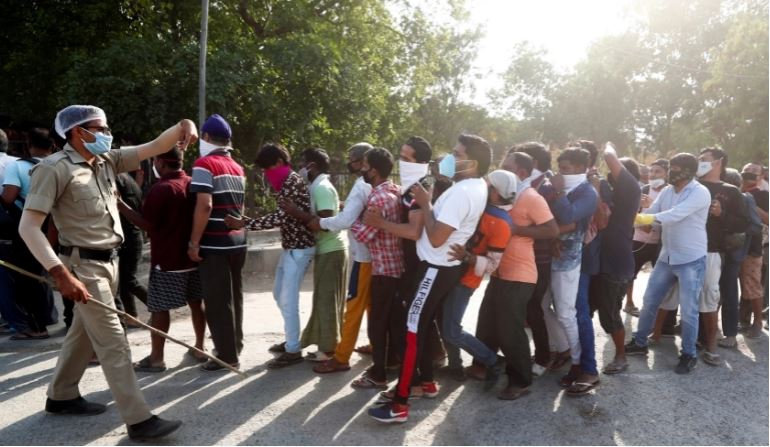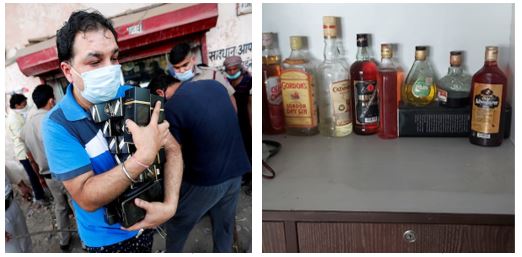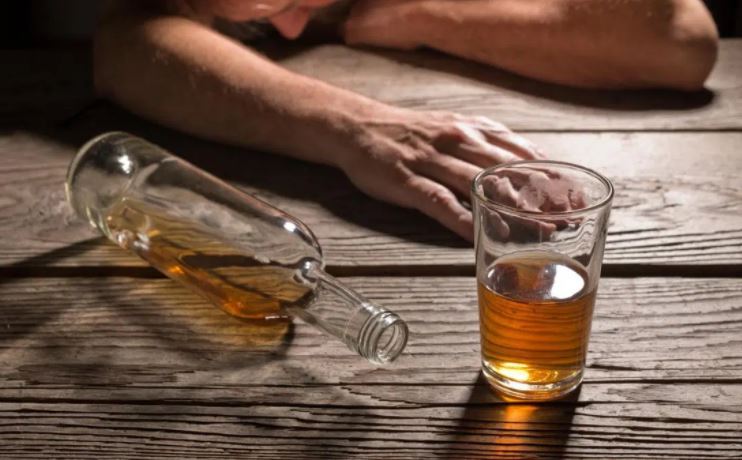
Till COVID19 struck India, alcoholic drinks were easily available except in states under prohibition, Gujarat, and Bihar. Around 36% increase in liquor sales was taking place before the pandemic struck. Alcohol was a drink for unwinding, socializing, and celebrations as also for meeting business associates. Working ladies and girls were also being lured with targeted advertising campaigns. Bars, discotheques, and microbreweries were having a booming business, especially on weekends. Even the ‘ahatas’ country liquor shops were blooming almost everywhere.
The spate of lockdowns before the first wave changed all this. Consumers who loved to drink with friends were hit hard. The chronic alcoholics had withdrawal symptoms too. Bootleggers, initially down for a few weeks resumed their nightly service in a few places. Once the liquor shops were opened and rates hiked, there were long, serpentine queues. Social distancing was forgotten and large stocks bought as the bars were still shut. With night curfews still in place and work from home going strong, the trend of drinking inside the house started. Drinking alone or with a spouse or kin.

Before continuing with the subject in focus, a few TERMS need to be understood:
Alcohol Use Disorder (AUD). This is a chronic disease, characterized by uncontrolled drinking and preoccupation with alcohol. Initially, it may be in a mild form. Over a period of time, repeated alcohol abuse leads to dependence and the urge to drink more to get the same ‘high’. The person could put their own safety and health at risk. Besides a huge monetary loss.
Binge Drinking. Drinking 5 or more units of alcohol for Western men (4 for Indians) and 4 or more units for ladies (3 for Indians) in a 2 hour period is termed as Binge drinking. Frequent binge drinking has serious health issues.
Chronic Alcoholism. It is a severe form of AUD, characterized by drinking alone, at any time of the day. The person feels guilty, but in India, they tend to go into denial and refuse treatment or even counseling.
ALCOHOL INTAKE IN COVID TIMES
Covid Stress in India. Covid has permanently affected our lives in many ways. Some people are more affected than others. Covid Stress Syndrome has been described by some scientists in persons having anxiety or depression leading to an increase in substance abuse. If the first wave was due to uncertainty and prolonged lockdowns, the second is compounded by fear of severe disease and death in people of all age groups. Other Covid related stresses are:
- Loss of jobs or reduced earnings.
- Increase in borrowings and inability to repay loans.
- Loss of earning members in some families.
- Loss of life’s savings in treating near and dear ones.
- Lack of a daily routine and feeling of boredom
- Having to stay alone for some category of students or those in jobs away from home.
- Work from home culture increased isolation.
- Uncertainty of further studies in the students in final years of schools or graduation.
- Uncertainty of getting a job for those who have completed their studies.
- Health workers and frontline workers see death, severe disease, cremations day in and day out.
Effects of Alcohol Intake during Covid. Studies across the world revealed that alcohol sales increased by 50% to 100% in the year 2020. Data for India is not available but studies have reported that the first wave revealed a higher incidence of stress, suicides, and substance abuse, including alcohol in India. Since the bars, pubs, and shops were shut, liquor stocks were purchased and stored at home. Such drinking caused numerous ill effects in the families.

- Drinking at home is unlimited as it is from prepaid stock unlike a bar or drinks with friends. Hence excessive drinking (with increased expense) is the result.
- Drinking in front of children is becoming a new phenomenon in many families. It sets a bad example as children in formative years feel that drinking is normal.
- Binge drinking at home may lead to sociopathic behaviour. The brunt maybe felt by the family in the form of domestic violence or marital rape.
- Poor decision making by persons of AUD resulted in difficulties in home schooling of their children.
- Incidences of anxiety and depression increase. As treatment for AUD is not taken/ easily available, suicide rates increased.
- AUD people can’t exercise. Alcohol intake, with snacking added calories leading to obesity, or even diabetes or hypertension.
- Pregnant women who got initiated into drinking at home have a higher risk for still births or babies with birth defects.
- Some adolescents were tempted to steal a drink or two from the liquor stock kept at home.
Affect of Corona disease in people who have AUD. By now everyone is aware that the virus may not cause any symptoms in many cases. Over 80% of those having Corona symptoms may recover early with basic home treatment. People having AUD are likely to have more severe disease than non-drinkers for the following reasons:
- They have lower immunity.
- Being Obese due to excessive consumption of calories and lesser exercise.
- Some long time cases would be having Diabetes or hypertension. Both are risk factors for severe disease.
THE WAY OUT
In the pandemic of ‘Spanish flu’ of 1918- 1919, Whisky was one of the ‘treatments’ of the disease. Whisky in smaller quantities reduced anxiety and fear. It also sedated patients and health workers who had to work round the clock. A century later, we are better informed and aware of the ill effects of alcohol, especially if taken on regular basis and in excess amounts. It is advised that:
- Awareness be built on the ill effects of alcohol.
- Alcohol should not be stored at home. If at all a very small amount be kept. If stored at home, it should be under lock and key.
- Alcohol should not be consumed on a regular basis in front of children.
- Incidences of domestic violence should not be ignored. Help must be sought.
- Both spouses should be involved in financial issues and care taken to not spend excessively on liquor.
- Helpline numbers must be stored on the phone. Help should be sought as required.

Alcohol hits ladies and young girls more. Alcohol may cause dependence in some people, but not in others. Will write about these issues in succeeding weeks.

Maj Gen Krishan Chauhan is a second-generation army officer. He studied in Sainik School Kapurthala, graduated from IG Medical College, Shimla and did his MD from AFMC/Pune University. He has served in the Army Medical Corps for 36 years and retired as the Addl DGMS army. He is an avid marathon runner and a writer. He first wrote articles for children in The Young Chronicles. Later, he started writing his own blog as Genkris, on WordPress where over 25 articles on various subjects can be accessed.



